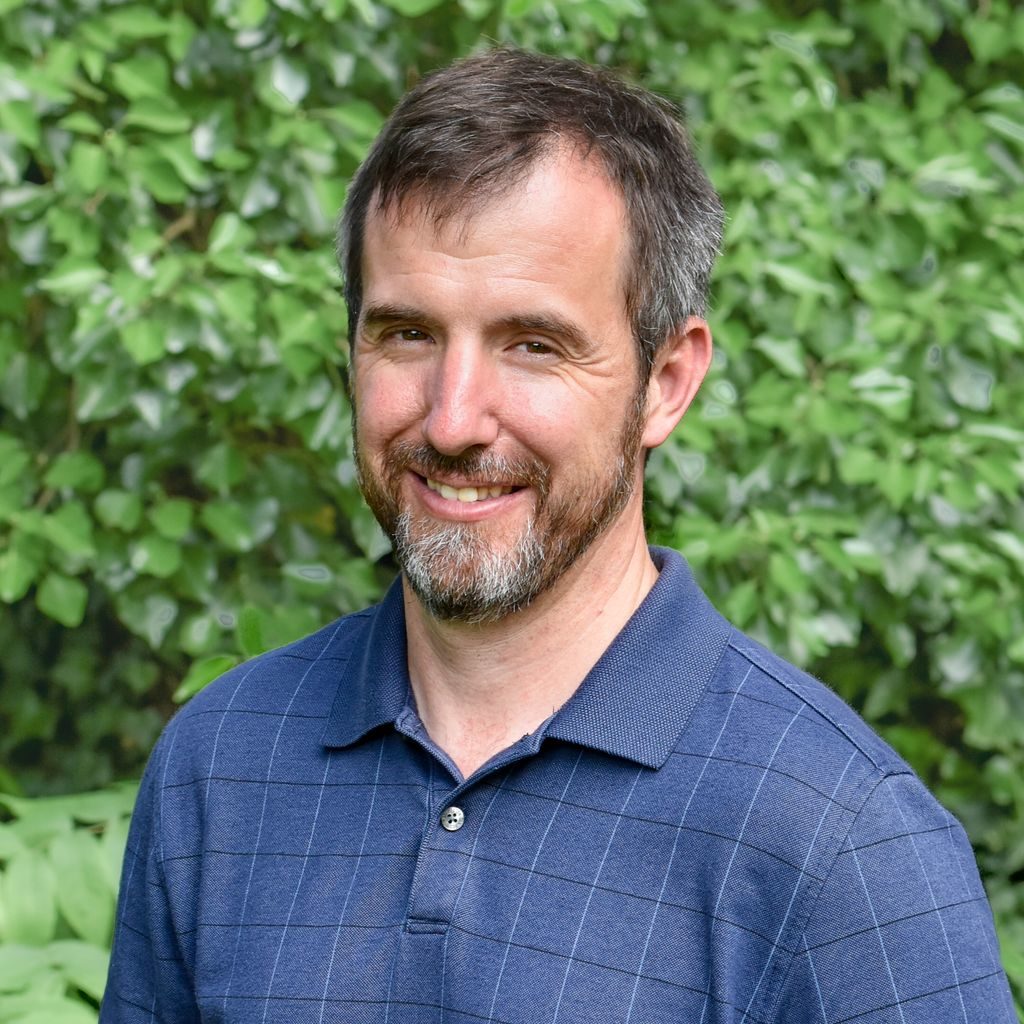How to A.D.U.L.T: Understand

Prefer audio? Click here to listen!
This article was originally published on Medium.
Unbound uses an educational framework called ADULT: Ask, Do, Understand, Live, and Thrive. In the first two posts of this series I talked about Ask and Do.
Ask means understanding the reality that the knowledge we need to be successful in our world has fundamentally changed. Instead of knowing lots of answers, we need to know how to ask good questions. In a dynamic, rapidly changing world, the critical academic skill is the ability to learn. It’s the ability to quickly and effectively master complicated information.
Do is the acknowledgment that we live in a world where business and the way work gets done has fundamentally changed. Action now drives theory. Instead of deep planning, iterative decision-making is how we make progress. In the last blog post I argued that project-based education is a better way to prepare young people for most kinds of work.
In the ADULT framework, Ask is the underlying framework of ideas. Do is the action-based component of the framework. “U” stands for Understand. Understand is the hinge that connects ideas and actions to outcomes.
The future of education in your inbox.
Get productivity tips, commentary, and Unbound updates sent to you!
To explore this hinge, we first have to address a fundamental misunderstanding.
The Wrong Idea
The way we prepare young people for their future is based on the old answers-based paradigm and an outdated planning-based process that doesn’t match today’s reality. Here’s the typical way that we tell young people to prepare for life:
At an early age a child is taught that good school performance is the key to success and failure is fatal. Bad grades or a failed class will ruin a high school GPA, and a good high school GPA is essential for life. That’s because once a child enters high school and becomes a young adult, he is told that the key to the future is deciding what career he wants so he can choose the correct major to prepare for that career. Then ultimate success will be determined by getting into the best college possible (typically while going into crippling debt), getting great grades (failure is still not an option), and then trading the magic paper (a degree) for a wonderful job and career and thus a wonderful life.
If this doesn’t work, further introspection is required. A masters degree should be chosen, more debt incurred, a more magical piece of paper acquired, and then that will be traded for happiness forever.
This career-planning process sort of worked in a world where career options were limited, change happened slowly, and planning was paramount since direction changes were expensive (see the article on Do). It almost never works in a world where change is constant, technology disrupts everything, and traditional education (in most disciplines) has little practical application to a job. On top of that, there’s another fatal assumption buried in this common advice: that a person’s worth and happiness is inexorably tied to a person’s job and career.
The result? A lot of very stressed, highly confused young people who more often than not decide to check out of the entire system. Now they live in their parent’s basement and play video games, become over-credentialed baristas, or skip showers and live that #vanlife.
We are in desperate need of some better understanding.
A Better Understanding
Our current model of preparing young adults for their future hinges on asking young people who haven’t been around the sun very many times to make a very big decision that has enormous consequences. Get The Decision right and it’s a beautiful glide into career success and happiness until early retirement and a lovely life of ease. Get The Decision wrong and it will be career misery for the next 30 years while you live for the weekends, yearn for vacation, and wistfully wish you had made a different choice about The Decision all those years ago.
No thanks. Why does that model gain any kind of credence? What if we understood things differently?
Success is not defined by a job or a career. Success is about knowing how to live and how to thrive (details in next two posts). Your job and career have little to do with your major or whether or not you attended college (let alone your grades). It has a lot to do with whether or not you understand your unique skills and how to use them to achieve your goals and the goals of any organization you work for.
Life is Better Understood as a Story
Life isn’t about The Decision. Life is much better understood as a story. A good story is divided into chapters. You don’t figure everything out all at once. You have to read each chapter, in order, for the story to make sense. In a good story the hero is just going along with life with few problems or concerns. Then a Big Event happens that disrupts normal. The hero now has to figure some things out. The hero has to make sense of this new world, discover things about himself, and learn new skills. Then the hero has to take what he has discovered about himself and his new skills and apply what he has learned. He has to come to a new place and a new understanding, and prepare for the sequel and a new story.
That’s a more accurate description of the life most of us live. In the beginning we are children who are going along with life, not worrying about much because that’s what parents are for. Then the big disruption comes: Growing up means moving out and having to make your own decisions. All of a sudden it’s time to learn some new things and acquire new skills.
A Better Path to Understanding
In our current messed-up model, we tell young people with almost zero world experience to engage in deep introspection, plan really, really well, and then (based on their internal self-assessment) make great decisions that will determine their future. And don’t forget: failure is fatal. No wonder young people are stressed out.
What if we told young people something different? What if we told young people that the path to their future will be determined by almost countless little decisions and by taking the next step immediately available. Failure is part of the process — it’s to be expected. Finding your place in the world and living your story should be an ongoing process of discovery…and it should be fun!
To take this better route it’s essential to understand three foundational ideas.
Foundational Idea 1: The Personal Triangle
The first foundational idea is that there are three broad categories of skills that people typically fall into: Create, Connect, and Coordinate.
Create people love new ideas, finding solutions to problems, and making and doing something brand new.
Connect people love people and excel at relationships. Connect people can be extroverted or introverted, but either way they prioritize relationships and understand people.
Coordinate people love organization and optimization. They like to take established ideas and processes and make them better and more efficient. They are focused, detail oriented, and usually committed to understanding something deeply.
Think of a triangle, with each of these categories at a point. Create is on top, connect is on the right, and coordinate is on the left.

Usually, people aren’t on the points, they’re on a spectrum in the middle of the triangle. Most people have a primary set of skills, a secondary set, and aren’t very good at the third set. Mark where you think you are in the triangle. Closest to one point, closer to a second, farthest from the third. This isn’t some set, immutable truth about you. You can willingly choose to become more of something you aren’t currently, but most people have a natural leaning towards one way or the other.
As a personal example, I’m closest to the connect point, closer to the create point, and farthest from the coordinate point. I understand relationships better than anything else, love new ideas, and have to work hard to stay organized.

Foundation 2 — The Team Triangle
Now draw that triangle again and put Vision at the top point, Storytelling on the right, and Operations on the left.

Every team in every organization everywhere needs to have all three of these points to be successful.
Vision: A team has to have someone in charge who has the vision and understanding to know what the team is supposed to accomplish, what success looks like, a plan to get there, and the ability to see dangers and opportunities coming in the future. Vision is the executive part of the team.
Storytelling: Every team needs to be able to tell others (and their own team) what they do, why they do it, and why what they do is important to others. Storytelling is the sales and marketing part of the team.
Operations: A team that knows where it is going (vision) and can explain that vision to others (storytelling) won’t be able to get there without operations. Operations is about all of the details, processes, budgets, organization, execution, and delivery of whatever it is the team is doing. Nothing actually happens without operations.
Where do you prefer to work on a team? Just like with the personal triangle, most people prefer a specific role on a team, can do another, and aren’t very good at the third. And just like with the personal triangle, you can choose to learn new skills and move to a new point.
Personally I prefer to be on the vision part of a team and my primary skill set is storytelling. My weakest area is operations.

Foundation 3 — Putting it All Together
Here’s the idea that pulls this all together: Every point of the team triangle can be done by someone from any point of the personal triangle, but where that person is on the personal triangle will make a big difference in how they do things.
A company needs a CEO, the vision part of the team triangle. A new startup with many innovative ideas is likely best served by a create leader. An established company that needs to keep getting better will best be served by a coordinate leader. A company that has internal problems and needs to be reset will probably need a connect leader.
The sales and marketing or storytelling division of an organization needs sales people to work the phones and close deals (connect), people who can analyze data and figure out how much to spend on which social media platform for advertising (coordinate), and someone who can figure out how to use all this new AI technology in a way that brings in new business (create).
The operations team keeping the factory running needs coordinate people to figure out how much raw material to buy and how to optimize factory floor work flow, create people to come up with better ideas on how to ensure quality control, and connect people who can train new workers to run the machines.
A Better Way
Let’s take our triangles and return to our young hero who is smart enough not to be trapped into thinking that he needs to figure out “The Decision” to get on with life.
He understands that his life is a story. Working through this disruption of growing up is what makes the plot interesting, and he needs to take this page by page and chapter by chapter. He doesn’t need to make The Decision and pretend he has figured it all out.
Instead, he understands a better concept: having an Attitude of Mastery. Starting as early as possible he has sought out new experiences. He has applied for jobs, volunteered, tried out for the team, joined the group. Once on a new team he has actively sought out something to do that helps the team achieve its goal. Then he practices having an Attitude of Mastery and seeks to do whatever he is doing better than everyone else.
He repeats this process as opportunities arise. He knows it’s time to seek a new opportunity when he has mastered, to the best of his ability, what he had the opportunity to do. Each time he does something, he looks for the pattern. Did he use create, connect, or coordinate skills? Did he choose to work on the vision, storytelling, or operations part of the team?
After several repetitions, our young hero will be in a much better position than his peers. He will not only know what he is good at, he will have built skill and experience in his areas of strength.
There isn’t a company on the planet that doesn’t need vision, storytelling, and operations people. Sure, specific skill and experience in a certain area or industry will eventually be needed, but it is much easier to acquire and build that skill if you know how to work in your own strengths and seek positions that maximize those strengths. If technology disrupts your industry, your broad personal and team skills are transferable.
Summary
Building a future on the outcome of a high-stakes, inflexible decision made when a young person has very little experience is a bad way to prepare for the rest of life. It simply doesn’t make sense in a world characterized by constant change.
To understand your life as a story — one that should be taken page by page and chapter by chapter — will lower the stress and increase the fun of growing up.
Understanding foundational ideas about your personal skill and the way teams work will allow you to take whatever opportunities are in front of you right now and use them as natural steps into an exciting and interesting future — a future where you will be prepared for whatever changes, disruptions, and plot twists come along.

Jonathan Brush is the President and CEO of Unbound, a homeschool graduate, and a homeschool dad of six. He worked for nine years as a Director of Admissions for a private, liberal arts college, and then spent over ten years working in non-traditional higher education.
Jonathan loves Unbound and Unbound students and dreams every single day about new ways to connect them to each other. He gets to work with the world’s best team and the most amazing student body in the history of the world (which is just as awesome as it sounds), and field questions about Rule 4 violations (ask an Unbound student to explain). Jonathan and his family make their home in the Shenandoah Valley of Virginia.



